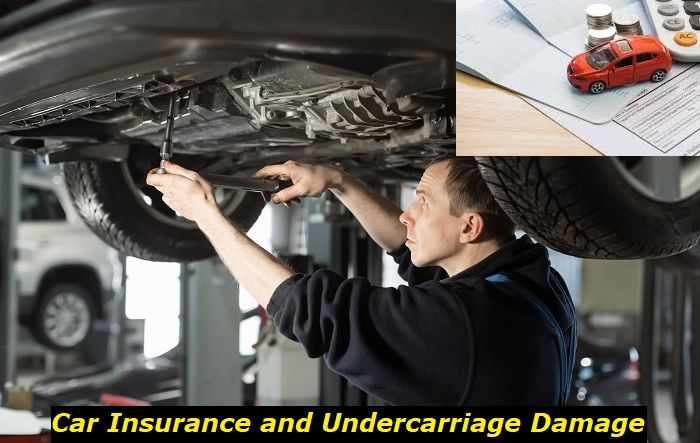When your automatic transmission jerks while shifting from the 1st to the 2nd gear, this is one of the signs of possible damage. There are a number of things that can trigger this behavior of an automatic transmission starting with the fluid level and finishing with fatal damage.
Jerking when shifting from 1st to 2nd gear highlights
- Level of importance:Medium
- Reasons:Issues with fluid, electronic control problems, hardware problems
- Needed expertise:High
- Needed tools:Professional tools set
- Time taken:1-10 hours
- Can you drive? Carefully
- Possible issues: Fatal damage, issues with torque converter, inconvenient driving.

How Do You Know That Your Transmission Is Failing?
It's important to notice the actual symptoms. First of all, they will help you figure out what the problem actually is. Secondly, these symptoms will most likely reduce the inspection time and allow you to pay less for the inspection in the repair shop or dealership.
So, when your car jerks shifting between the first and second gears, you will need to pay attention to several symptoms:
- Does it shake only when going from the first to the second or it also shakes when downshifting?
- How bad is the shaking? Do you actually feel some bumps in your car, does it become uncomfortable to drive your vehicle?
- Are the problems consistent? Or do they just go away sometimes and then reappear?
- Do you hear any clunking noises or other sounds when your vehicle shifts between gears?
- Does this also happen in other gears? In some transmissions, this may mean that there is a problem with the torque converter or the clutch pack (PowerShift, for example).
- What kind of transmission do you have? In DCT (dual-clutch transmission), it's most likely the clutch while the conventional automatic transmission will have another set of possible problems.
After answering these questions, you are much better ready for a visit to the dealership. Why am I talking about the dealership or repair shop? Because solving the problems with your transmission on your own is close to impossible. At least for the majority of us who have little to no knowledge about car engineering.
What Are the Common Reasons for the Jerking Transmission?
1) Transmission Fluid
Transmission fluid is the lubricant in both automatic and manual transmissions responsible for protecting the vehicle's gears and enabling smooth shifts when driving. The fluid is red or pinkish in its original color but slowly changes to a dark red or brown when going bad.
Typically, manufacturers will suggest a change of fluid every 60,000 miles. Some will change sooner, and some will do it much later; it depends on your car's manual and your mechanic's diagnosis. Even if the manual states that the fluid is eternal in your transmission, it's still recommended to change it after 80-100 thousand miles.
The most common reason for a failing transmission component is a leakage in the transmission fluid or low fluid overall. A low level will lead to poor pressure and this will obviously lead to issues like jerking, shutting down, or shaking when shifting.
While it is still possible to have transmission fluid in the right condition, putting the wrong fluid in your vehicle could still cause jerking. As specified in your car manual, most manufacturers will specify what kind of viscosity fluid to use on your vehicle. Using the wrong fluid will cause your vehicle to jerk when shifting.
2) Temperature deviations in the transmission
Not all transmissions are equipped with temperature sensors to let you know that the unit is overheating. This can happen when the cooling system is failing or just because your transmission has this common issue.
For example, the automatic transmission that came with the 1.8L and 1.4L Turbo engines in the Chevy Cruze had the common issue of overheating. When the temperature was much higher than normal, it started shaking when shifting between gears. The shift from 1st to 2nd is the most sensitive, so it feels pretty hard.
One of the solutions is to install a transmission fluid cooler. Another option is to change the fluid and see if this helps. Also, your transmission may overheat because of poor driving habits (like towing too heavy trailers or driving at high revs all the time).
3) Clutch in the DCT unit
Dual-clutch transmissions like DSG, PowerShift, or PDK are not really reliable. They may fail because of basically two faulty units: the control module (TCM or TCU) and the clutch pack. These transmissions have two clutches to shift swiftly but the cooperation between these two clutches is not always perfect.
Also, the clutches are worn out naturally much harder than in manual transmission because they have to engage in pretty harsh conditions.
The problem is much worse in dry-clutch transmissions like the PowerShift or the older DSG7 units. But wet-clutch models also may throw a problem or two.
So, if you have a dual-clutch transmission, have your clutch checked. Alternatively, there can be a problem with the transmission control unit.
4) Torque converter
This is the "clutch" of the conventional automatic transmission. This part ensures that the gears are shifted softly and at the proper time. If the torque converter fails, it will make your transmission jerk heavily in certain conditions. Very often, the first shaking you will feel comes between the first and second gears.
The torque converter has friction plates that act as a simple clutch. Also, it can have issues with lubrication and cooling. Anyway, if something fails in it, the torque converter will require replacement.
5) Valve body problems
A conventional automatic transmission has a valve body. It's a big block with a lot of passages for transmission fluid and valves that open and close when a certain gear should be engaged. If something is clogged in the valve body, the needed gear will just not be engaged. Also, the jerking or shaking may occur if the certain valve doesn't open in the needed time and causes some delay.
The valve body can be cleaned. But sometimes, some actuators or valves need to be replaced. Of course, this is the task of a professional mechanic.
Usually, valve bodies require service because of poor transmission fluid quality and this is one more reason for changing the fluid regularly and only using high-grade products.
How Do You Fix These Issues?
If you experience jerking when shifting between 1st and 2nd gear, your first mode of action should be to service your transmission. You do this by first understanding your car's policy on checking transmission fluid. The majority of vehicles demand that you take it to the brand specialist for transmission issues.
For vehicles that allow checking with a transmission dipstick, make sure you find the proper section of the driver's manual before checking the level. There may be some differences in the required procedure for proper detection of the fluid level in various transmission types.
So, here are the ways to deal with jerking when shifting between the first and second gears:
1) Adding transmission fluid
If you identify low transmission fluids, the next action should be to add more fluid. Before adding any, you need to establish what type of transmission fluid your vehicle takes up. With your dipstick removed, get your filler tube and add your fluid while checking levels.
2) Changing Transmission Fluid
This is much harder. Automatic transmissions have a lot of fluid in the system and some of this fluid will stay there - it's impossible to change it entirely without taking the unit apart. But anyway, even a partial change may do the trick.
When changing the fluid, make sure you buy the proper product that is recommended by the manufacturer. Also, let professionals do this because the process has a lot of tricky things that you will need to know.
After the fluid change, drive 10-20 miles before understanding if this helped you resolve the jerking issue. If this didn't, you may need complete transmission overhauling. Sometimes, the replacement of the transmission seems like a better option.
Inspecting and repairing the transmission
Now, this step depends highly on what kind and model of transmission you have in your vehicle. If it's a dual-clutch unit or a CVT (which is unlikely because it doesn't jerk when shifting, it actually doesn't shift), you may need total replacement of the transmission.
Conventional automatic transmissions can be repaired. It will cost you quite a lot of money because the work is super labor-intensive and requires a lot of time. Of course, your car will be stationary all this time in the shop.
The price for transmission repair starts at $1000 for some minor issues and may go up to $5,000 for some really bad problems and multiple breakdowns. So, before you agree to pay for this, ask the mechanic to let you know the approximate price for the repair.
Can you drive like this?
Well, I don't recommend driving with a shaking transmission. But you can drive to the nearest repair shop or dealership. Also, you can try driving in manual mode if your transmission has this option. Anyway, calling a tow truck is not necessary but driving like this for some time is not actually acceptable.
If you keep driving with a faulty transmission, it will fall apart pretty soon and require replacement. The new transmission will cost you a fortune and then there is another fortune to pay for labor. So, while you still have the chance of simple repair, use it and don't kill the transmission by driving it in this condition.
Final thoughts
It's really unpleasant when your transmission starts shaking and making all kinds of noises. It means you will have to spend some money on it. The easiest possible solution is to add some transmission fluid. But it doesn't mean that this will inevitably help. You need to register the symptoms so that it won't be that hard for your mechanic to locate the issue.
Ignoring this problem is not an option. If you do this, you will most likely lose the transmission eventually and will have to pay for the new one.
About the authors
The CarAraC research team is composed of seasoned auto mechanics and automotive industry professionals, including individuals with advanced degrees and certifications in their field. Our team members boast prestigious credentials, reflecting their extensive knowledge and skills. These qualifications include: IMI: Institute of the Motor Industry, ASE-Certified Master Automobile Technicians; Coventry University, Graduate of MA in Automotive Journalism; Politecnico di Torino, Italy, MS Automotive Engineering; Ss. Cyril and Methodius University in Skopje, Mechanical University in Skopje; TOC Automotive College; DHA Suffa University, Department of Mechanical Engineering






Add comment